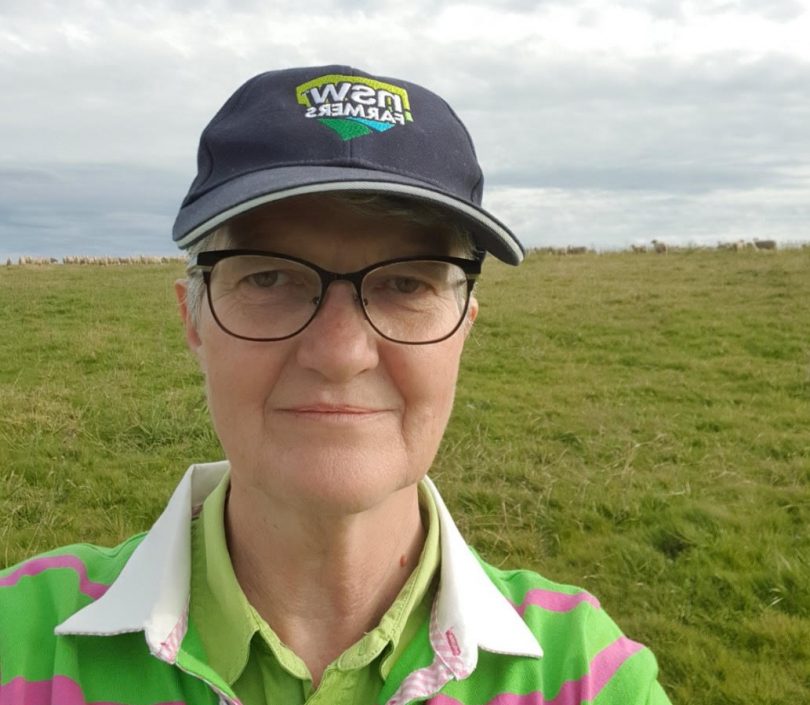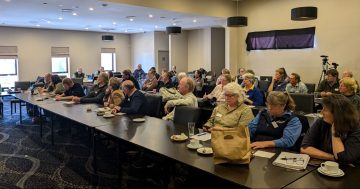
Honorary Professor Robyn Alders AO says farmers and producers have problems beyond climate change. Photo: Supplied.
Since the discussion of carbon offsets first started, it has had many farmers questioning if carbon sequestering is the new cash crop?
On Friday, 26 November, industry professionals will meet with producers at Crookwell Showground to present opportunities to those wanting to transition from the idea of carbon sequestration towards field practice.
The Australian Agricultural Centre’s farming and carbon field day will unpack and define carbon sequestration in agricultural production. Topics include carbon and plants, animals, soil, machinery and production.
As Australia draws nearer to its climate change commitments, farmers are asking themselves how they can participate.
Many interested in the sector have turned to soil carbon for solutions to continuous cropping and overgrazing, or changed the way some of their land is managed.
There are about 1000 projects participating in the Emissions Reduction Fund, each undertaking one of several methods to store or capture carbon. The current priorities are soil carbon, carbon capture and storage, biomethane, plantation forestry and blue carbon.
Corporates and individuals can purchase Australian carbon credit units from projects to offset their emissions, and statistics from the marketplace are showing that demand is growing rapidly. By entering the scheme, carbon credit income can assist with business development and other costs.
Honorary Professor Robyn Alders AO says research and development on carbon sequestration is only just beginning.
Robyn, from Fullerton, is chair of the Upper Lachlan Branch of the NSW Farmers’ Association, and a member of the Upper Lachlan Landcare Grazing Group. For more than 30 years she has worked with farmers as a veterinarian and researcher.
“It’s unlikely that governments will endorse policies that lead to consumers paying the real cost of food production,” she says.
“This means credit systems that reward farmers and producers for ecosystem services, such as carbon sequestration and biodiversity, are key vehicles for supporting sustainable agricultural enterprises that also regenerate the farm environment.”
Robyn says the credit scheme is difficult to access for small-scale enterprises, but farmers and producers who are prepared to work together will reduce the overhead costs associated with participation in projects. This would benefit those “across specific landscapes, such as water catchments”, she says.
These schemes are heavily reliant on positive weather systems much like we are seeing now, says Robyn.
It’s apparent that during a drought, the quality of soil would degenerate and thus carbon pricing schemes would suffer.
“Climate change is not the only problem facing farmers and producers,” says Robyn.
“Poor farm gate prices are forcing farmers and producers to make difficult choices. To maintain their enterprises, they frequently have to make decisions that reduce their investment in environmental stewardship.”
Other areas of concern are the loss of species such as pollinator bees.
“If pollinator bees become extinct, it would severely affect food security and destroy the delicate balance of the Earth’s ecosystem,” says Robyn.
There are also shortfalls in the use of livestock products, and a loss of wild and farmed biodiversity in some animal species, and a narrowing of the gene pool in others. Both are contributing to the loss of nutrients in what is considered to be a healthy diet.
Other speakers at the Australian Agricultural Centre’s farming and carbon field day include Colin Fielens from MaiaGrazing, on analytics technology used by graziers for planning; and Dianna Jacobsen from Shine at Business, a professional business consultant from the southern Riverina and northeast Victoria, on de-risking farming operations.
For more details or to register, visit Australian Agricultural Centre.







